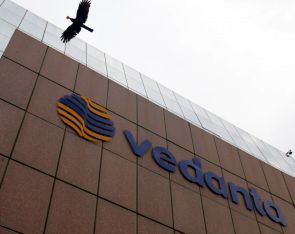Vedanta Aluminium's (VAL) Rs 5,000-crore (Rs 50 billion) alumina refinery at Lanjigarh faces trouble over the denial of bauxite from the Niyamgiri hills but that hasn't stopped its technological innovations.
 The company plans to implement zero-based costing - a method to identify and implement every cost-saving opportunity by cutting ineffencies at every cost centre.
The company plans to implement zero-based costing - a method to identify and implement every cost-saving opportunity by cutting ineffencies at every cost centre.
"Our aim is to make Lanjigarh refinery the first zero-based refinery in the world," said Mukesh Kumar, chief executive of VAL.
According to Kumar, the refinery can recover the entire cost of producing alumina by making high-value by-products and also cut down on the pollution load of the plant.
The cost recovery is based on the normal cost of Indian alumina, pegged at $250-260 a tonne. Currently, the company incurs a higher cost of $380 a tonne because, in the absence of access to Niyamgiri resources, it has to bring in bauxite from various parts of the country and abroad.
According to Kumar, bauxite is a rich source of valuable metals such as vanadium, gallium, iron and silica. Add to this the possibilities of recovering a sizeable quantity of caustic soda, a costly input used in alumina-making, and selling of clinkers produced from red mud, a hazardous waste of the plant, the cost of production of alumina could be zero, Kumar added.
However, he pegged the additional investment to separate and extract these items at various stages of the chemical process of producing alumina from bauxite at Rs 500-600 crore (rs 5 - 6 billion).
The company is working with Institute of Minerals and Materials Technology (IMMT), Bhubaneswar and the National Institute of Technology, Rourkela to fine-tune the separation process and build pilot projects.
With inputs from IMMT, the company has built a Rs 1-crore (Rs 10 million) plant, currently producing 250-300 tonnes in a month of vanadium, which sells at Rs 600,000 a tonne. "We are earning about Rs 2 crore (Rs 20 million) from the plant
each month, making the payback period for investment less than one month," Kumar added.
VAL has received offers from Nippon Aluminium in Japan for setting up of a gallium plant at an initial investment of Rs 25 crore (Rs 250 million) with a capacity to produce 50-60 tonnes of this material, a key raw material for electronic and space industry.
The annual world production of gallium, which costs Rs 40 lakh (Rs 4 million) a tonne, is only 350 tonnes and India imports 10-15 tonnes of this rare metal for its needs.
Similarly, through mineral beneficiation and high pressure filtering of the slurry, the company intends to separate iron particles (which constitutes 25-32 per cent of bauxite ore) and make pellets.
The firm is working on a project to recover a large amount of caustic soda during high-pressure filtering of slurry after alumina production. This, along with separation of silica during beneficiation, can save the company a substantial cost as with every one per cent increase in silica, the caustic soda consumption goes up by Rs 900 a tonne of alumina.
The removal of iron and silica from the bauxite will also help improve the ore quality, leading to higher productivity, Kumar pointed out. "At Lanjigarh, we are able to produce 0.7-0.8 million tonnes of alumina from a 0.5-million-tonne production line through such innovations."
Besides, the company has set up a pilot project to produce laterite from red mud, a hazardous waste, and sell it to cement industries for use as clinkers.
The storage of red mud is a critical issue in alumina industry as it not only takes up large space (sometimes accounting for 60 per cent of a project area), but also has the danger of overflowing the storage pond and contaminating the surrounding agricultural land habitats.
"There is an ever-increasing need of acquiring more land to store red mud with the ageing of the land and expansion of capacity. We want all alumina industries in the world to use the method to put their red mud to gainful use, which is also environment-friendly. Hence, we have not patented the methods," he added.

 The company plans to implement zero-based costing - a method to identify and implement every cost-saving opportunity by cutting ineffencies at every cost centre.
The company plans to implement zero-based costing - a method to identify and implement every cost-saving opportunity by cutting ineffencies at every cost centre.